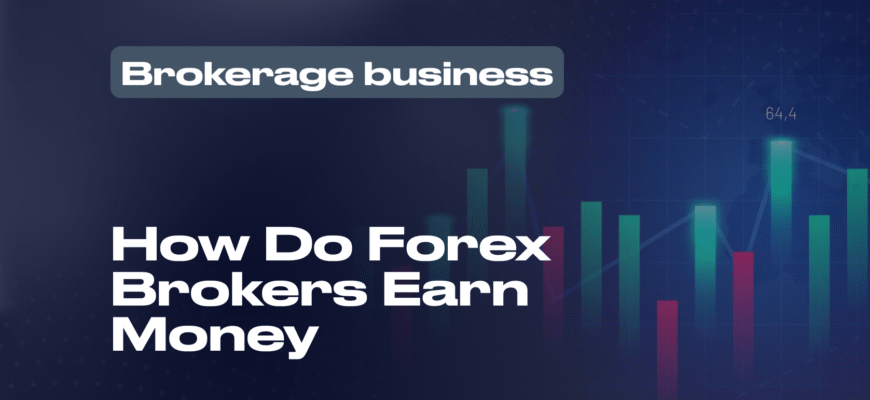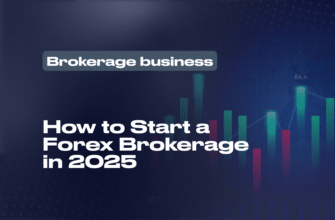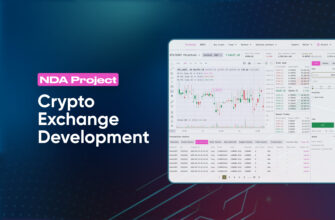- Why Understanding Broker Revenue Matters
- Spread – The Hidden Price in Every Trade
- Direct Commissions
- Overnight Rollover or Swaps
- Adding Markups to Liquidity Prices
- Market Making: When the Broker Is the Counterparty
- Non-Trading Charges
- Partnerships and White Labels
- Do All Brokers Earn the Same Way?
- Conclusion: Brokers Profit, But Transparency Matters
The foreign exchange market is gigantic — every single day, traders around the globe exchange currencies worth more than 7 trillion dollars. Retail traders look at Forex as a chance to profit from small price movements. But there’s another side of the story: brokers. They are the ones giving access to the market, and naturally, they are also earning money from every trade.
So, how exactly do they profit? Let’s go step by step.
Why Understanding Broker Revenue Matters
Before putting real money into trading, it’s smart to ask: “What’s in it for the broker?” Knowing how a brokerage makes profit allows you to:
- Compare the real trading costs between companies.
- See if there are hidden charges.
- Avoid situations where the broker’s interest may be opposite to yours.
Make a more conscious choice of where to open an account.
Spread – The Hidden Price in Every Trade
The first and most common source of income is the spread. This is simply the tiny difference between the price you can buy a currency pair for and the price you can sell it for.
Imagine EUR/USD shows two quotes: 1.1000 / 1.1003. That three-pip gap is the broker’s fee. Even if it looks small, when thousands of traders execute millions of trades, the numbers add up to serious revenue.
Some brokers keep spreads fixed, while others allow them to fluctuate depending on market liquidity.
Direct Commissions
Another frequent way brokers make money is by charging a flat commission per lot. This model is used mainly by ECN-type brokers.
For example, they might take $6–$10 for every full lot you trade. On the positive side, spreads in such accounts are very close to zero, which is why many professionals choose this option — costs are predictable and transparent.
Overnight Rollover or Swaps
If you leave a position open past midnight (broker’s server time), you will see a small debit or credit in your account. This is called a swap fee or rollover.
It depends on the interest rates of the two currencies in your pair. Brokers act as intermediaries here, but they can slightly adjust the rate, which creates an extra profit margin for them.
Adding Markups to Liquidity Prices
Large brokers usually connect directly to liquidity providers. They get raw interbank spreads, often close to zero. But before showing prices to retail traders, they add a tiny markup. You don’t see it as a separate fee — it’s included in the quote.
This method ensures the broker always earns a piece from each transaction without charging visible extra costs.
Market Making: When the Broker Is the Counterparty
Some companies operate as market makers. This means they don’t always pass your order into the wider market. Instead, they may take the opposite side of your trade.
- If you lose, the broker gains.
- If you win, the broker pays out from its own liquidity.
This setup can be profitable for the broker, but it naturally creates a potential conflict of interest. That’s why many experienced traders prefer STP or ECN brokers.
Non-Trading Charges
Apart from trading itself, brokers also earn from service fees. These include:
- Inactivity charges for unused accounts.
- Deposit and withdrawal fees (sometimes hidden in currency conversion).
- Extra services like premium education or private analytics.
- Copy-trading platforms, where brokers take a percentage of the profits generated.
Partnerships and White Labels
Not all income comes directly from clients. Many brokers grow through affiliate programs or Introducing Broker (IB) networks. In such setups, partners bring in new clients, and brokers share a portion of spreads or commissions with them.
Additionally, big companies often provide white label solutions — smaller firms rent their trading platforms and liquidity for a fee. This creates another solid revenue stream.
Do All Brokers Earn the Same Way?
No. The way a broker profits depends on its business model:
- Market Makers focus on spreads and sometimes on client losses.
- STP Brokers usually profit from spreads and small markups.
- ECN Brokers rely mostly on commissions and volume.
As a trader, your goal is to find out which model matches your strategy and risk tolerance.
Conclusion: Brokers Profit, But Transparency Matters
At the end of the day, Forex brokers are businesses. They must earn money to provide platforms, liquidity, and customer support. The key is transparency.
When choosing a broker, look at:
- What spreads and commissions they charge.
- How swaps are calculated.
- Whether they are regulated.
- If their interests align with yours.
Understanding these revenue streams won’t make you immune to trading risks, but it will protect you from unpleasant surprises.





